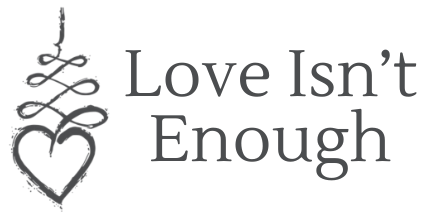By Dr. John Schinnerer
| GuideToSelf.com | LoveIsntEnough.net | TheEvolvedCaveman.com
What if your emotional patterns at age five could predict how you love, fight, communicate, and connect decades later?
That’s exactly the kind of insight uncovered by the Dunedin Multidisciplinary Health and Development Study—one of the most ambitious research projects ever run on human development. Beginning in 1972, researchers followed 1,037 people born in Dunedin, New Zealand, from birth into their 50s. In 2018, Science published a sweeping review by lead psychologists Dr. Terrie Moffitt and Dr. Avshalom Caspi, revealing how emotional habits in childhood echo into relationships, careers, health—and love life—decades later.
Your Emotional Blueprint Starts Early
The takeaway? The way we learned to handle emotions in childhood has a long half-life. Not in a “you can never change” way—but in a “emotional habits either grow interest or rack up debt over time” kind of way.
1️⃣ Emotional Regulation = Relationship Gold
Children with strong early self-control and emotional regulation were far more likely to, as adults:
- Enjoy emotionally safe, stable relationships
- Resolve conflicts without escalation
- Build careers and financial stability that reduce relational stress
- Maintain physical and mental well-being
- Avoid destructive patterns like chronic criticism, stonewalling, or withdrawal
And here’s the kicker: these advantages held even when accounting for IQ, socioeconomic status, or family background.
Translation: The way you handle hurt, disappointment, or frustration impacts your relationship far more than your résumé or your zip code.
2️⃣ Unmanaged Emotions Cast a Long Shadow
Children with high emotional reactivity, impulsivity, or chronic negativity often faced greater risks later in life, including:
- Anxiety and depression
- Chronic stress that strains partnerships
- Distrust and difficulty with intimacy
- Higher likelihood of substance abuse or infidelity
- Poorer communication and problem-solving skills
And often, these issues didn’t show up as dramatic explosions in childhood—they were subtle patterns that only revealed their cost in adulthood, when marriages crumbled or love felt harder than it should.
3️⃣ Emotional Neglect Leaves a Mark—Even on the Body
The study found that early emotional neglect, trauma, or ongoing stress literally speeds up biological aging. By midlife, these individuals showed more inflammation, accelerated cellular aging, and even poorer brain health.
Bottom line? Emotional wounds aren’t “just in your head.” They affect your body—and your capacity to love—too.
4️⃣ Change Is Possible at Any Age (But Sooner Is Better)
The good news: some participants overcame rocky emotional starts. Often, they had:
- A single supportive adult who modeled healthy emotion management
- Therapy, couples counseling, or mindfulness training
- Opportunities for “emotional rewiring” in adolescence or adulthood
The earlier these skills were learned, the better the outcomes—but the door to change is never closed.
How to Know Your Emotions Need Recalibrating
In love, emotions aren’t the problem. The intensity or duration of them can be.
Intensity: You erupt in anger over a small delay, or dissolve in tears when plans change. These outsized reactions can erode trust and safety in a relationship.
Duration: Your partner says something hurtful, and you replay it in your mind for days or weeks. When emotions linger far past the triggering event, they can harden into resentment or distance.
Healthy emotional regulation means your feelings fit the situation—and don’t stick around to poison connection.
Bringing It Back to Your Relationship
The Dunedin findings underline something we see every day at Love Isn’t Enough:
Emotional intelligence isn’t just “nice to have.” It’s the foundation of a safe, passionate, lasting relationship.
If you and your partner want to:
Reduce conflict cycles
Create emotional safety
Build trust and resilience together
…then learning to manage emotions—yours and theirs—is one of the most important investments you can make.
💡 Start Your Emotional Upgrade
Work with us as a couple. Email us at Info AT LoveIsntEnough.net
Work with us individually. Email us at Info AT LoveIsntEnough.net
Master your anxiety with The Ultimate Anxiety Relief Course at https://guide-to-self.mykajabi.com/store – For calming reactivity and building inner steadiness.
Master your anger with The Ultimate Anger Management Course at https://guide-to-self.mykajabi.com/store/ – For transforming frustration into constructive communication.
Love Isn’t Enough Podcast at https://loveisntenough.net – Insights and tools from Dr. John Schinnerer & Joree Rose on building healthier, happier love.
Because when you master your emotions, you give love its best chance to thrive.
Wanna Master Your Emotions? Here’s Where To Begin Your Journey:
🧠 Top tools for emotional mastery and high tech execs from the best executive coach in Silicon Valley:
💬 The best podcast for relationships and those who want to create a happier, safer love life:
👉 For the tremendous work Dr. John & Joree are doing in couples counseling, visit their top couples counseling site:
🎙️ Top 10 Podcast for Men looking to evolve with greater communication skills, grit, mental toughness and happiness:
🌱 Joree’s expert work on mindfulness, therapy & transformation (aka, the best therapist for women near you):
📸 For more info on the superb counseling Joree is doing with women who don’t want the next 20 years to be like the last 20, visit her site at
👉 MindfulnessAndTherapyCenter.com
💬 The top 10 podcast for women over 40:
🎙️ Journey Forward with Joree Rose Podcast
#loveisntenough #relationshipadvice #loveandrelationships #relationshiptips #relationshippodcast #relationshiptools #relationshipgoals #marriage #marriageadvice #marriedlifetips #marriedgoals #marriagetips #couplestherapy #couplegoal #emotionalIQ #emotionalmanagement #happiness #toppodcasts #podcasts #womenspodcasts #menspodcasts #podcastsformen #podcastsforwomen

Recent Comments